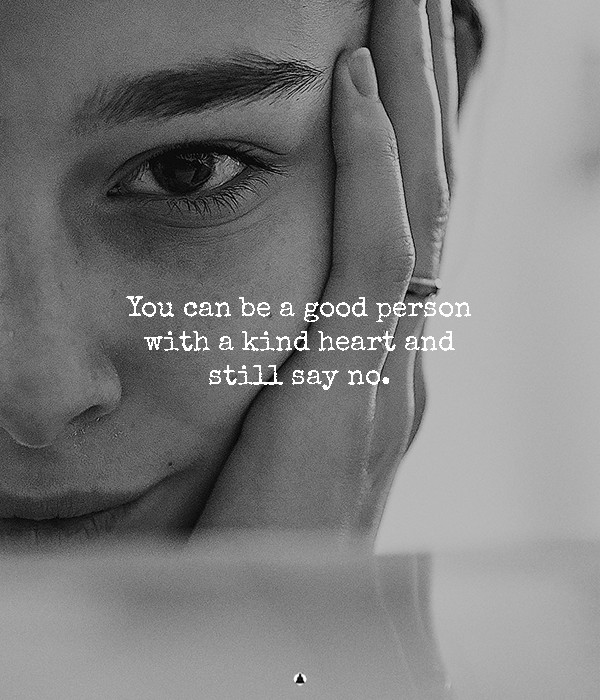“When you say yes to others, make sure you are not saying no to yourself.” ~Paulo Coelho
Why is it so hard for us to say ‘no’ when someone asks us for something we are unwilling to do?
Always saying ‘yes’ to others can result in fatigue and exhaustion. You won’t have time to get your work done. Your priorities will not be set straight and therefore, your life will get messy.
Therefore, it is essential to take care of yourself first and do your things. In order to do that, you need to start saying ‘no’ to people and things that are not enriching your life or helping you grow. Yes, you can still help others, but you should never forget about yourself and your needs.
If you are a caregiver and have a difficulty saying ‘no,’ here are 8 things you can do that will help you to say the word ‘no’ easily and guilt-free.
1. ISOLATE YOURSELF WHEN YOU ARE FEELING OVERWHELMED
Whenever you start feeling emotional and overwhelmed, isolate yourself and spend time alone to identify your feelings. If you are feeling hurt, anxious, frustrated, have low self-esteem, are more confrontational than ever, you probably are exhausted for catering to other people’s needs and forgetting about your own. Take your time to rest and recharge your batteries.
2. KNOW THAT YOU HAVE DIFFERENT OPINIONS, THOUGHTS, AND FEELINGS FROM OTHER PEOPLE
Know that you are a separate person from the person who asks you to do something from them. They have their own feelings, thoughts, and opinions about things; you have yours. It is not for them to change your beliefs and vice versa. So, stay true to you and what you believe in. Don’t let anyone convince you to do something you are not comfortable doing.
3. START SAYING ‘NO’
Remember, you have every right to say ‘no.’ You don’t have to be mean and aggressive to someone while you refuse them. You can be kind and genuine and still say ‘no.’ Moreover, you don’t have to explain your ‘no.’ You have a right to it. Period.
4. IF SAYING NO IS HARD FOR YOU, GIVE YOURSELF THE 24-HOUR RULE
Oftentimes, when we are asked to do something, our emotions take over our judgment and we agree to the request. That leads to us exhausting yourself by taking to many things on our plate. Therefore, if you have trouble say ‘no’ immediately, tell the other person that you’ll get back to them in 24 hours. That way, you can find a nice way to refuse them without being overwhelmed by your emotions.
5. PROTECT YOUR BOUNDARIES
If you say ‘no’ and then others convince you to change your mind, they will start not taking your ‘no’ seriously. Therefore, it is essential for you to maintain your boundaries and stick to your ‘no.’
6. CHALLENGE OR ACCEPT THE INNER DIALOGUE YOU HAVE WITH YOURSELF
If deep down, you believe that you need to help others every time no matter what and not refuse anything you’re being asked to – it is time to change your way of thinking. There are things you can do to help others, but there are also things that you cannot do, and you shouldn’t drain yourself and your energy by doing them. A good friend is not the one who agrees to everything. Remember that.
7. ALLOW YOURSELF TO STRUGGLE
Your feelings of guilt won’t disappear overnight. You will feel bad for saying ‘no.’ You will feel guilty. And it is going to be hard at the beginning, but you must give yourself permission to struggle. Understand that these feelings are okay. They don’t mean you did the wrong thing. With time, those feelings will be gone, and you will feel freer than ever.
8. ASK FOR HELP
This is a hard thing to do, especially if you are always the one who is helping other people. Oftentimes, by helping others and catering to their needs, we forget about our own. We are so busy doing things for others that we forget we need help too. You can get help in various ways. You may start by sharing how you feel or let someone help you in a task. This is important to get in touch with yourself and your things for a change.
Finally, by learning to say ‘no’ you will organize your priorities and set straight your focus. I repeat, this doesn’t mean that you should always say ‘no’ but allow yourself to be flexible and get more in touch with yourself and what you need. There are times when you can give, and there are times when you can’t. Learn the difference.



